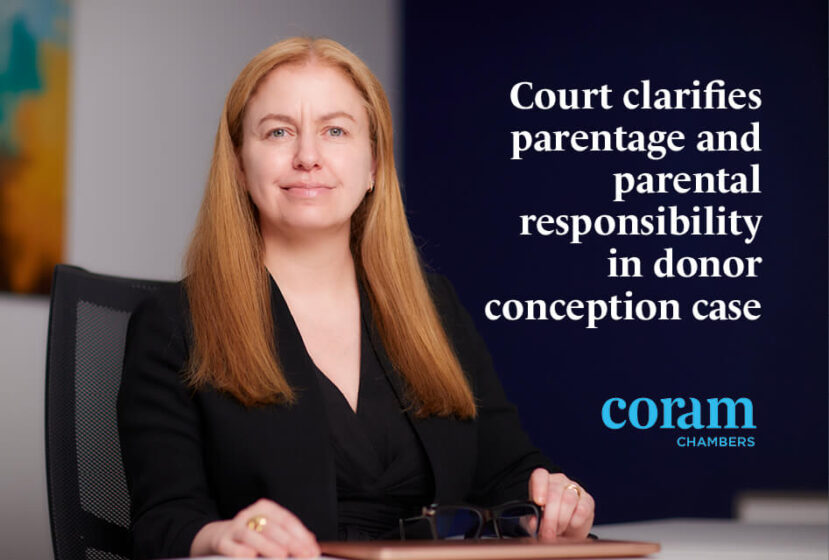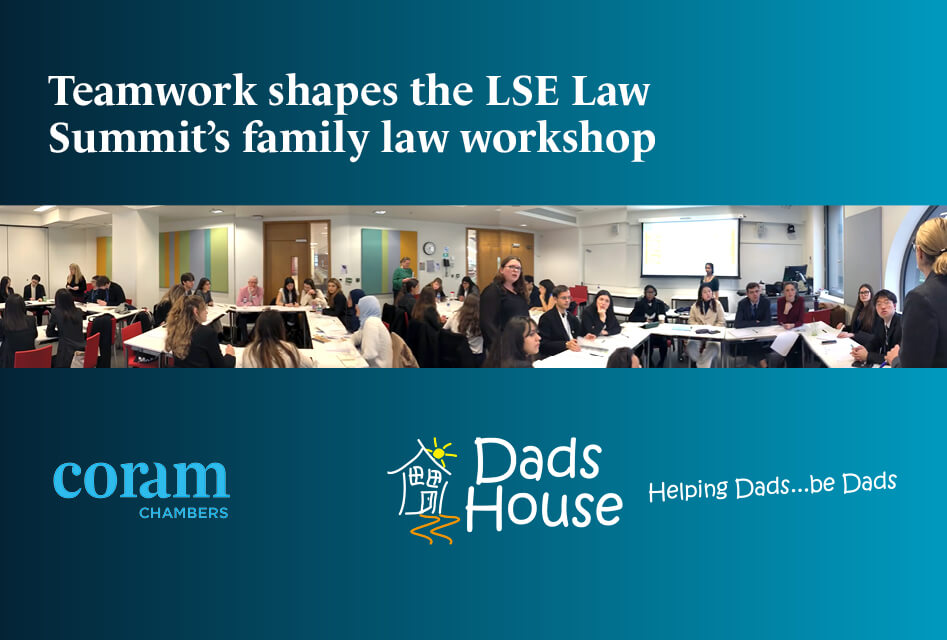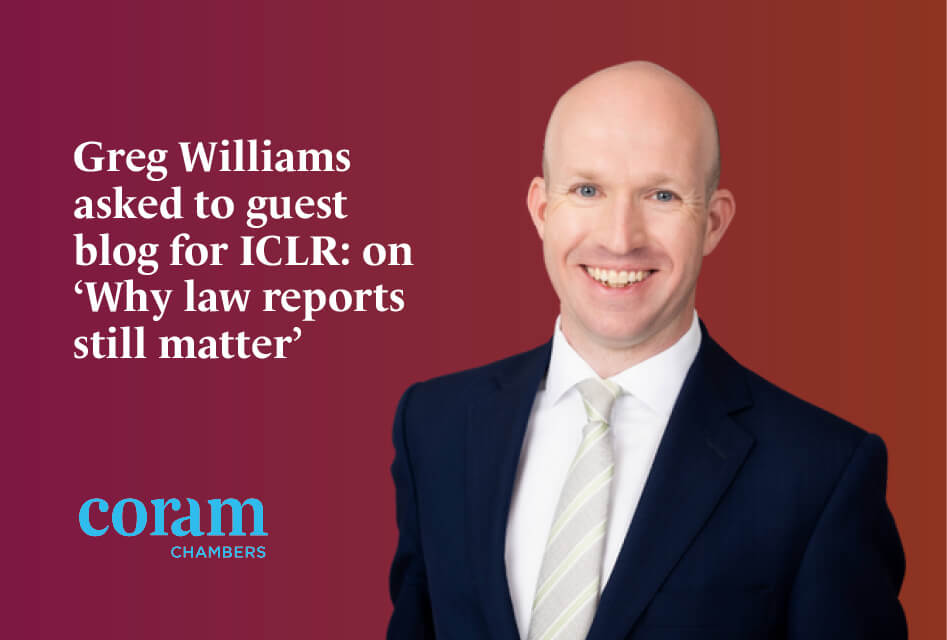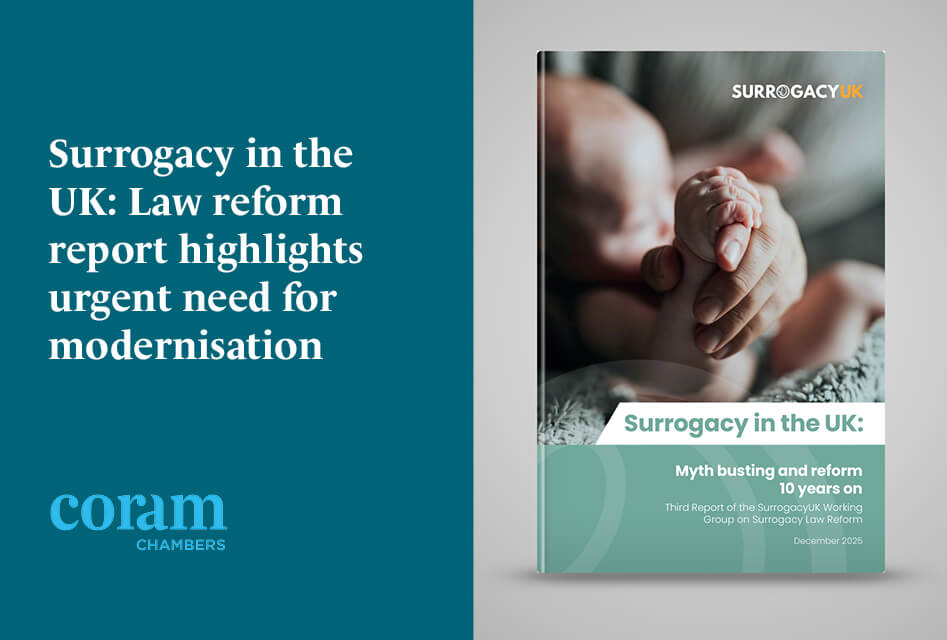
The High Court has handed down a judgment in the case of ED v MG [2025] EWHC 1876 (Fam), in which Dr Bianca Jackson, barrister at Coram Chambers, represented the applicant. The case shines a light on the complexities of legal parentage and parental responsibility following donor conception overseas.
Background
The proceedings revolved around a three-year-old boy, anonymised as D. The applicant, ED, was D’s de facto father, while the respondent, MG, was his mother. After unsuccessful IVF attempts with ED’s sperm, the parties turned to a clinic in Northern Cyprus for treatment using anonymous donor sperm. ED was registered as D’s father on the UK birth certificate, although the parties were neither married nor in a civil partnership. Their relationship came to an end in June 2023.
Legal Applications and Issues
MG applied for a declaration that ED was not D’s legal parent and sought to amend the birth certificate. ED applied for a declaration of parentage and a child arrangements order. The central issues before the court were whether ED should be recognised as D’s legal parent, and what child arrangements and parental responsibility would best serve D’s welfare.
Judgment and Key Findings
Mr Justice McKendrick found that, under English law and the Human Fertilisation and Embryology Act 2008, ED could not be recognised as D’s legal parent. The use of anonymous donor sperm at an unlicensed overseas clinic, combined with the parties’ unmarried status, meant the statutory requirements for legal parenthood were not met. The court held that being named on a birth certificate alone did not confer legal parenthood or parental responsibility in these circumstances.
Despite this, the court acknowledged ED’s important psychological and social role in D’s life. A detailed child arrangements order was made, granting D a joint lives with order: D would live primarily with his mother, but also spend significant time with ED, who was granted parental responsibility. The arrangement aims to safeguard D’s relationship with both adults and ensure that decisions about his upbringing are made jointly.
Welfare and Parental Responsibility
The independent social worker’s evidence was pivotal. It confirmed ED posed no risk to D and highlighted the need for both adults to share responsibility. Allegations about ED’s mental health and conduct were found to be unsubstantiated. The judge underlined that openness about D’s parentage was in his best interests and that a shared approach to parenting would best protect his welfare.
Conclusion
The judgment delivers clarity on parentage after donor conception abroad and demonstrates the court’s commitment to the child’s welfare over formal legal status. Bianca’s representation ensured the applicant’s relationship with D was recognised and protected through a robust child arrangements order. The case serves as a timely reminder of the importance of legal advice for families undertaking assisted reproduction, particularly outside the UK.
You can read the full judgment here or at the bottom of this page.


